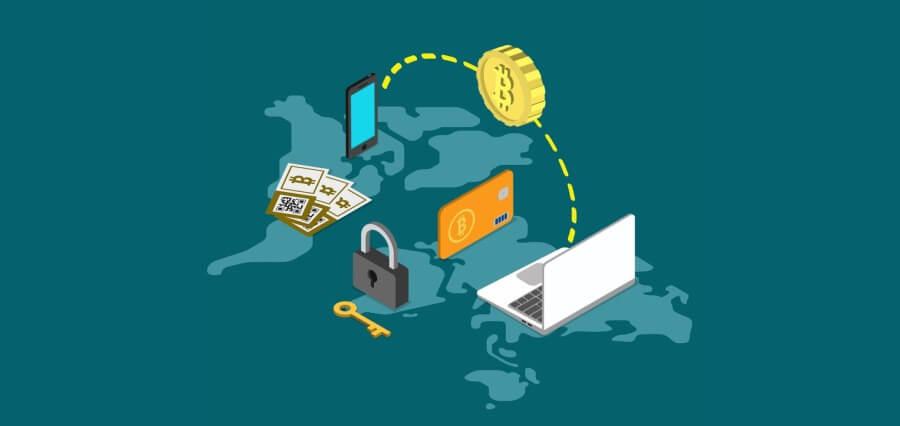In an increasingly globalized world, businesses and individuals often engage in international payment transactions to facilitate trade and personal remittances. These transactions allow for seamless exchange of goods and services across borders, making it essential for understanding the benefits of international payments. As technology has advanced, so too have the methods and platforms for conducting these transactions, ensuring a convenient and reliable experience for users.
The Convenience of International Payment Transactions
One of the primary advantages of international payment transactions is the sheer convenience they offer. Gone are the days when international payments required lengthy processes involving banks and paperwork. Today, various digital platforms and payment services have emerged, providing users with user-friendly interfaces and rapid processing times.
Furthermore, international payments can now be made in real-time, allowing businesses to receive funds instantly, which is crucial in today’s fast-paced market environment. Payment providers such as PayPal, TransferWise (now Wise), and Revolut have streamlined the process, making it possible to send money or pay for services with just a few clicks on a smartphone or computer.
Another significant convenience is the variety of payment methods available for international transactions. Users can choose from credit and debit cards, bank transfers, and even cryptocurrencies, depending on their needs and preferences. This flexibility ensures that individuals and businesses can select the most suitable method for their specific circumstances, whether they prioritize speed, security, or cost-effectiveness.
Enhanced Security Measures
As international payment transactions become more commonplace, security remains a top priority for payers and payees alike. Many modern payment platforms prioritize security features to protect users from fraud and cyber threats. Encryption technology and multi-factor authentication are commonly used to safeguard sensitive data during transactions, providing users peace of mind.
Moreover, established payment providers often adhere to rigorous regulatory standards and compliance practices. For instance, they may be subject to regulations such as the Payment Card Industry Data Security Standard (PCI DSS), which mandates strict security protocols. This adherence not only enhances security but also builds trust with users who are increasingly wary of online transactions.
Additionally, some payment platforms offer fraud detection mechanisms that monitor transactions for suspicious activity. This real-time monitoring can alert users and service providers to possible fraudulent actions, allowing for prompt interventions that mitigate potential losses.
Cost-Effectiveness of International Payments
Another compelling reason to embrace international payment transactions is their cost-effectiveness compared to traditional banking methods. Traditional bank transfers can involve high fees and unfavorable exchange rates, making them less appealing for international operations. By contrast, online payment services often offer lower fees and better rates, enabling users to save money on transactions.
For example, Wise claims to use the mid-market exchange rate, meaning users do not incur hidden markup rates commonly associated with banks. This transparency in pricing encourages more users to choose digital platforms for their international payments. Lower costs are particularly crucial for small businesses and freelancers who rely on cross-border transactions for income.
Moreover, many digital payment services provide fixed fees instead of percentage-based charges, allowing users to predict costs with greater accuracy. This predictability aids in budget planning and financial management, especially for businesses that regularly engage in international transactions.
Real-Time Tracking and Transparency
The ability to track international payment transactions in real-time is another convenience that enhances the user experience. Unlike traditional methods, where confirmation may take days, many online services allow users to monitor their payments from the moment they are initiated to when the funds are received.
This level of transparency in payment processing is essential, especially for businesses dealing with tight deadlines. Users can easily verify the status of their transactions and address any issues quickly if something goes awry. Having access to detailed transaction records also aids in accounting and financial management.
Additionally, many platforms provide notifications via email or mobile app alerts, keeping users informed about important updates regarding their transactions. This proactive communication not only instills confidence but also allows for better decision-making in real-time.
Global Reach and Accessibility
International payment transactions inherently promote a global reach, enabling users to transact with anyone, anywhere in the world. Whether an online retailer selling goods overseas or an individual sending money to family abroad, the ability to operate on a global scale is invaluable in today’s interconnected society.
Moreover, many payment platforms prioritize accessibility, ensuring that users from varying economic backgrounds can engage in international transactions. Some platforms cater to developing markets, providing affordable solutions that empower individuals and businesses to participate in the global economy.
For instance, services like Payoneer allow users in countries with limited banking infrastructure to receive international payments, further promoting inclusivity. Enhancing access to international transactions is critical in fostering global trade and collaboration, as more people can easily engage beyond their local economies.
In conclusion, international payment transactions offer convenience, security, cost-effectiveness, real-time tracking, and global accessibility. As technology continues to evolve, these transactions will likely become even more streamlined and integrated into everyday financial activities. Understanding the advantages of international payment systems equips individuals and businesses with the tools necessary to thrive in a globalized economy. Embracing these advances not only simplifies transactions but also enhances financial harmony across borders.














